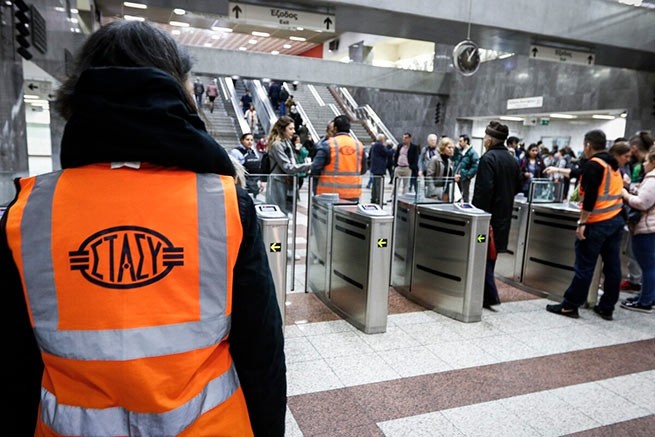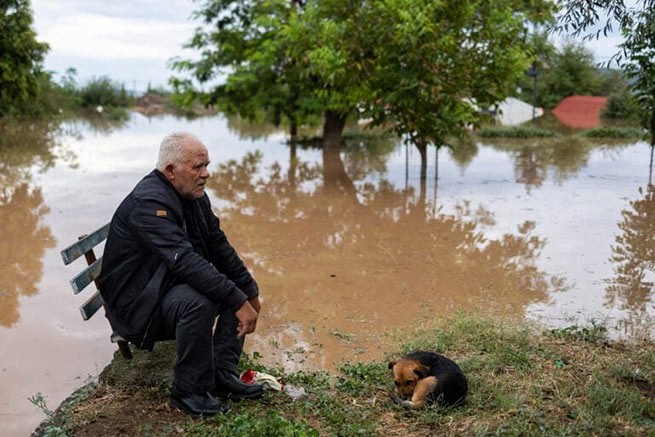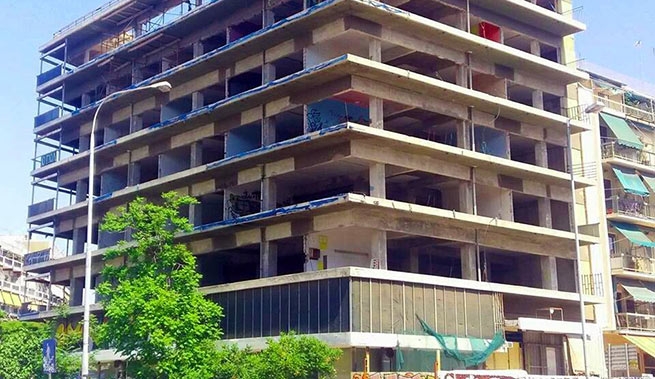As rents continue to rise, the cost of housing has become unaffordable for one in four households in Greece. To avoid a social explosion, the country’s authorities are frantically looking for a solution to the problem, one of which may be the provision of social housing, about which prime minister announced at TIFF autumn 2022.
Expensive rent is not a Greek phenomenon. Over the past decade, millions of Europeans have been unable to find affordable housing. However, many countries offer some form of public housing to people in financial difficulty. In Germany, for example, municipalities buy flats and turn them into social housing with affordable rents for the economically weaker. Also in Belgium, social housing is provided to people with low incomes, whether they are individuals or families.
Social housing can be provided by municipalities, public companies, cooperatives or non-profit organizations and cater to people experiencing social or economic hardship and be allocated based on a combination of income levels and priority groups.
In Greece, the social property rental sector was previously considered “non-existent”, but the situation is changing
Speaking to the media, President POMIDA Stratos Paradias said: “In our country there is no institution of “social housing”, which is widespread in Northern Europe. Anyone who wants to rent a house should turn exclusively to the private sector, which provides a solution to this issue.”
Another existing solution is the use of state real estate. Real estate owned by the Greek population throughout Greece can be transferred to the municipalities, and they in turn will refurbish it so that it can be transferred to potential tenants, subject to income criteria. In fact, from the rent that the municipalities will collect, they will have a stable income, of course, making social policy.
empty houses
At the same time, there are thousands of empty houses in our country, and there is no clear data on their condition and how many of them can be rented out. According to the latest data compiled by the Etheron Institute for Research and Social Change, “Greece has one of the highest vacancy rates in Europe with a large concentration in urban centers. In 2011, the percentage of vacant houses in the Municipality of Athens was 31%, in the Municipality of Piraeus 28% and in the Municipality of Thessaloniki 28.2%.
The number of vacant apartments in the Attica region increased by 77% in 2011 compared to 2001, while the number of vacant apartments in the municipality of Athens alone reached 132,000.
Changes
The government, through the draft law of the Ministry of Labor “My Home – Housing Policy for Youth”, promotes measures to rehabilitate the housing of young and vulnerable groups of the population, since benefits are provided to owners who do not have the necessary funds to repair their property through the action “Repair-Rent“(“Ανακαινίζω – Ενοικιάζω”). The goal is to include empty houses in the rental market, subsidizing owners for their modernization.
The bill provides that homeowners with an annual income up to 40,000 euros and real estate up to 300,000 euros participate in the program, while excluding those who have joined energy saving or renovation programs for any of their properties in the last five years. The property must have an area of up to 100 sq.m. and located in an urban area, must not be declared as a primary residence or as a rental property, but must be reported as vacant on an E2 return for the last three years.
Those who join the program are subsidized for repair and reconstruction costs up to 10,000 euros (including materials and works). The subsidy reaches 40% of the cost, provided that bills are paid electronically and the property is rented out for a period of at least three years.
At the same time, another action of the new bill is the “Coverage” program, which concerns the leasing by the state of private houses that participated in the “Estia” program to accommodate immigrants and provide them to vulnerable young people and new couples. The Estia program ended on December 31st. Immediately after that, these houses (subject, of course, with the consent of their owners) will be renovated, if necessary, at public expense and will be provided free of charge or at very low rent to vulnerable young people aged 25-39 who receive a minimum guaranteed income. . Priority will be given to large families (from three or more children) and single-parent families with objective criteria (point system). The program will be implemented by the General Secretariat for Social Solidarity and Combating Poverty of the Ministry of Labor and Social Affairs.







More Stories
Flood victims in Thessaly will pay property tax (ENFIA)
Fines of 1.5 million euros for 11 large retail chains, including Leroy Merlin, Attica and JYSK
Reuters reveals what the Mitsotakis government doesn't want to talk about: “Huge debt – low wages”